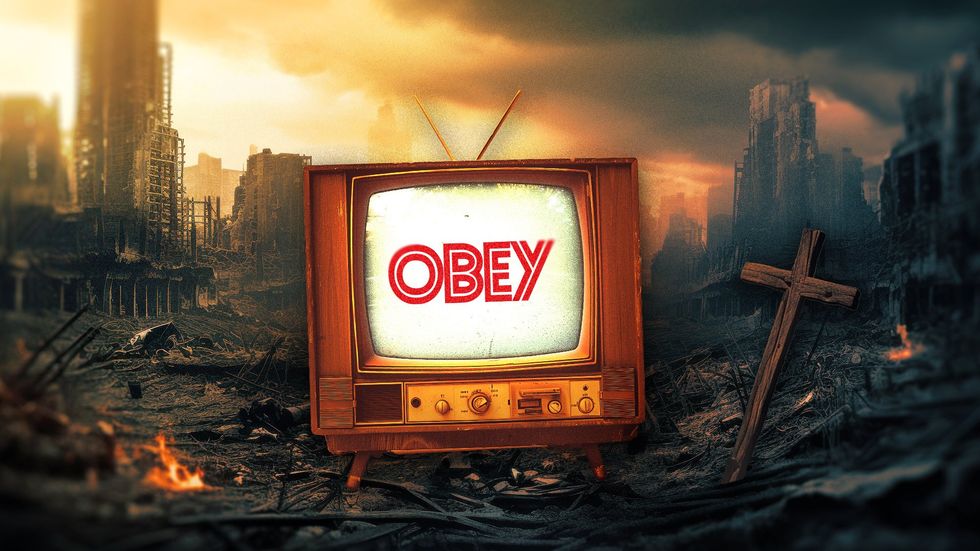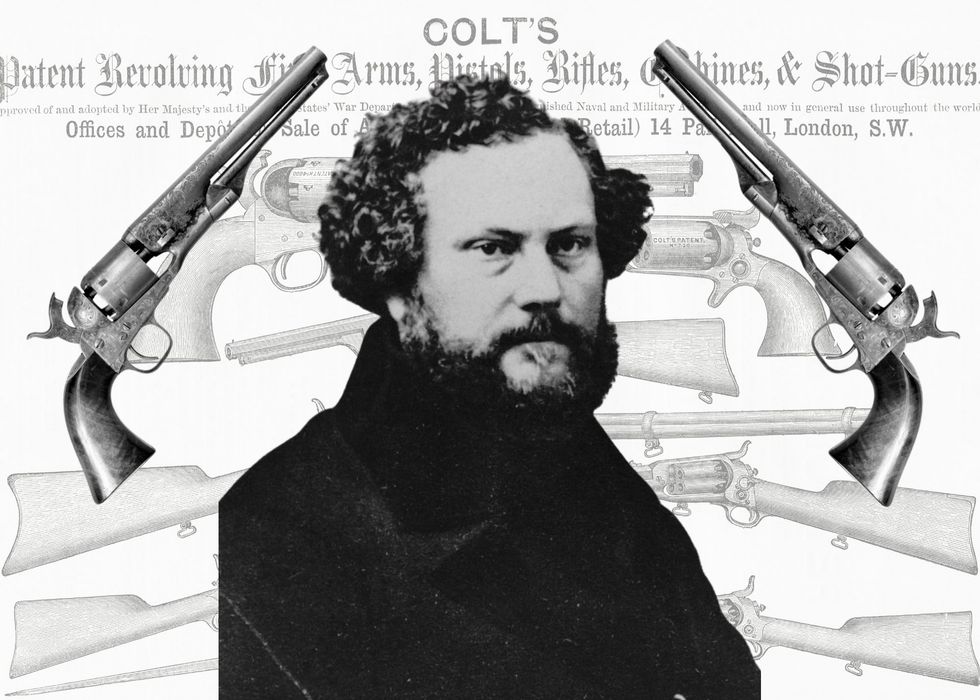No common tradition, no common sense
How can anyone believe that Kamala Harris is popular, price controls will solve inflation, or that open borders are good for the economy? How could an entire country founded on liberty allow their churches, schools, and business to be shuttered for years because of a nasty flu? Even on the most fundamental truths of human existence, like the differences between men and women, our society seems to be incapable of recognizing obvious fact.The cry heard most often from conservatives is one demanding a return to “common sense,” but what many fail to understand is that common sense requires a common tradition. Without a shared moral framework through which to understand our world, self-evident truths quickly dissolve into a quagmire of relativism and propaganda.The average American in 2024 has lost all contact with the social forces that would foster common sense.Any society that grows beyond a certain size invariably relies on the authority of institutions. When a civilization is small, the authority of families and tribes provides a natural scaffolding for social coordination through the perpetuation of religion, folkways, and traditions. But as a society expands to encompass new territory and peoples, it must shift some of that burden of authority into specialized institutions that allow coordination to scale. These institutions often emerge out of the organic needs of society and carry generations of hard-won knowledge, making them critical pillars to the success of the nation.Common sense arises from the combination of religious truth, cultural folkways, tradition, and institutional authority. This rich cultural web provides average people with access to generations of knowledge and wisdom, effortlessly shaping their worldview. When confronted with novel ideas about gender, history, or ethics, people compare them against society's collective experience, and only the most resilient ideas become part of tradition. Like a fish unaware of the water it swims in, a person immersed in a proper culture remains protected from extreme ideologies without even realizing it.Enemies of common senseThe average American in 2024 has lost all contact with the social forces that would foster common sense. The foundation of truth, a real and vibrant belief in Christianity, has been fractured. Due to culturally indiscriminate legal immigration and an open border that regularly allows millions of unvetted illegal aliens to enter the country every year, large foreign populations of different faiths have radically altered the religious makeup of the nation.Far more destructive is the modern obsession with “secular neutrality,” which has sought to purge religious influence from both public institutions and private life. Without a shared moral vision, the average person cannot form common sense conclusions.The modern obsession with individual freedom has dismantled critical institutions of family and community, which are essential for grounding culture. Society encourages young people to leave their communities in search of education and job opportunities, leading them to abandon the social networks that sustain their way of life.Marriage and parenthood are now seen as low-status choices, while individuals are pushed toward a series of disposable relationships that let them focus on empty corporate careers. Young couples find themselves priced out of the housing market, and, without the support of extended family, they rely on expensive childcare while both parents work to make ends meet. For most, the personal and professional costs of starting a family have made it an increasingly unfashionable and unattainable goal.Fraternities, church groups, bowling leagues, civic associations, and all the other voluntary social organizations that once defined American life have fallen away as families shrink and irreligious, self-styled “global citizens” retreat to their apartments and behind their screens. Online dating, Netflix, and grocery delivery make it possible to live a thoroughly modern life without any organic social contact.Becoming middle class no longer means the independence of property and the posterity of family but access to a wider range of subscription services to be enjoyed in isolation. It’s no accident this lifestyle helped facilitate lockdowns across the population.Mending the social fabricWhen separated from religious truth, cultural folkways, family, and basic daily social interactions, an individual’s perception of reality can quickly distort. Common sense isn’t an innate grasp of truth but rather an inherited store of knowledge and wisdom that makes navigating complex situations seem obvious.Without these organic social connections, the individual becomes untethered and highly vulnerable to propaganda and suggestion. The relentless flow of information through television and digital media, combined with the curated algorithms of social media, can rapidly and radically alter how an isolated person views the world.With


How can anyone believe that Kamala Harris is popular, price controls will solve inflation, or that open borders are good for the economy? How could an entire country founded on liberty allow their churches, schools, and business to be shuttered for years because of a nasty flu? Even on the most fundamental truths of human existence, like the differences between men and women, our society seems to be incapable of recognizing obvious fact.
The cry heard most often from conservatives is one demanding a return to “common sense,” but what many fail to understand is that common sense requires a common tradition. Without a shared moral framework through which to understand our world, self-evident truths quickly dissolve into a quagmire of relativism and propaganda.
The average American in 2024 has lost all contact with the social forces that would foster common sense.
Any society that grows beyond a certain size invariably relies on the authority of institutions. When a civilization is small, the authority of families and tribes provides a natural scaffolding for social coordination through the perpetuation of religion, folkways, and traditions. But as a society expands to encompass new territory and peoples, it must shift some of that burden of authority into specialized institutions that allow coordination to scale. These institutions often emerge out of the organic needs of society and carry generations of hard-won knowledge, making them critical pillars to the success of the nation.
Common sense arises from the combination of religious truth, cultural folkways, tradition, and institutional authority. This rich cultural web provides average people with access to generations of knowledge and wisdom, effortlessly shaping their worldview. When confronted with novel ideas about gender, history, or ethics, people compare them against society's collective experience, and only the most resilient ideas become part of tradition. Like a fish unaware of the water it swims in, a person immersed in a proper culture remains protected from extreme ideologies without even realizing it.
Enemies of common sense
The average American in 2024 has lost all contact with the social forces that would foster common sense. The foundation of truth, a real and vibrant belief in Christianity, has been fractured. Due to culturally indiscriminate legal immigration and an open border that regularly allows millions of unvetted illegal aliens to enter the country every year, large foreign populations of different faiths have radically altered the religious makeup of the nation.
Far more destructive is the modern obsession with “secular neutrality,” which has sought to purge religious influence from both public institutions and private life. Without a shared moral vision, the average person cannot form common sense conclusions.
The modern obsession with individual freedom has dismantled critical institutions of family and community, which are essential for grounding culture. Society encourages young people to leave their communities in search of education and job opportunities, leading them to abandon the social networks that sustain their way of life.
Marriage and parenthood are now seen as low-status choices, while individuals are pushed toward a series of disposable relationships that let them focus on empty corporate careers. Young couples find themselves priced out of the housing market, and, without the support of extended family, they rely on expensive childcare while both parents work to make ends meet. For most, the personal and professional costs of starting a family have made it an increasingly unfashionable and unattainable goal.
Fraternities, church groups, bowling leagues, civic associations, and all the other voluntary social organizations that once defined American life have fallen away as families shrink and irreligious, self-styled “global citizens” retreat to their apartments and behind their screens. Online dating, Netflix, and grocery delivery make it possible to live a thoroughly modern life without any organic social contact.
Becoming middle class no longer means the independence of property and the posterity of family but access to a wider range of subscription services to be enjoyed in isolation. It’s no accident this lifestyle helped facilitate lockdowns across the population.
Mending the social fabric
When separated from religious truth, cultural folkways, family, and basic daily social interactions, an individual’s perception of reality can quickly distort. Common sense isn’t an innate grasp of truth but rather an inherited store of knowledge and wisdom that makes navigating complex situations seem obvious.
Without these organic social connections, the individual becomes untethered and highly vulnerable to propaganda and suggestion. The relentless flow of information through television and digital media, combined with the curated algorithms of social media, can rapidly and radically alter how an isolated person views the world.
With the continuity of tradition and the organic ground of community stripped away, the individual becomes reliant on the authority of institutions as the basis for truth. This can work for a time, but if those institutions themselves become separated from their founding duties and the people they were meant to serve, organizations that were meant to stand as pillars of truth can quickly become conduits for lies.
Public health experts, scientists, journalists, academics, and even military leaders have proven that they are willing to sacrifice credibility to conform to political power. With this shattered epistemology, truth loses all ground, and media manipulation becomes the engine through which elites maintain power.
If conservatives want to end media dominance and restore common sense, they must first repair the social fabric that supports it. People become resistant to media narratives only when they have regular contact with reality and a higher tradition to evaluate new information. A man confined to his home, watching streaming entertainment and having food delivered, can easily be convinced that a pandemic is ravaging the outside world. In contrast, a man who regularly attends church, meets with friends, and takes his wife and children to the park can easily see that the media is spouting nonsense.
The solutions proposed by progressive politicians like Kamala Harris are absurd. They contradict the moral truth, economic reality, and social customs that once seemed obvious to everyone. However, as the shared social fabric that once held our communities together has frayed, common sense has lost its foundation, leaving isolated individuals highly susceptible to manipulative media and corrupt institutions. If conservatives want to restore common sense, they must first revive the traditions and communities that we once had in common.
Originally Published at Daily Wire, World Net Daily, or The Blaze
What's Your Reaction?


















![‘[Bleeping] insanity’: Watch Joe Rogan unload on Biden, Zelensky, and Deep State as fears of World War lll grow](https://www.wnd.com/wp-content/uploads/2024/11/joe-rogan-20241122-jpg.jpg)













































































